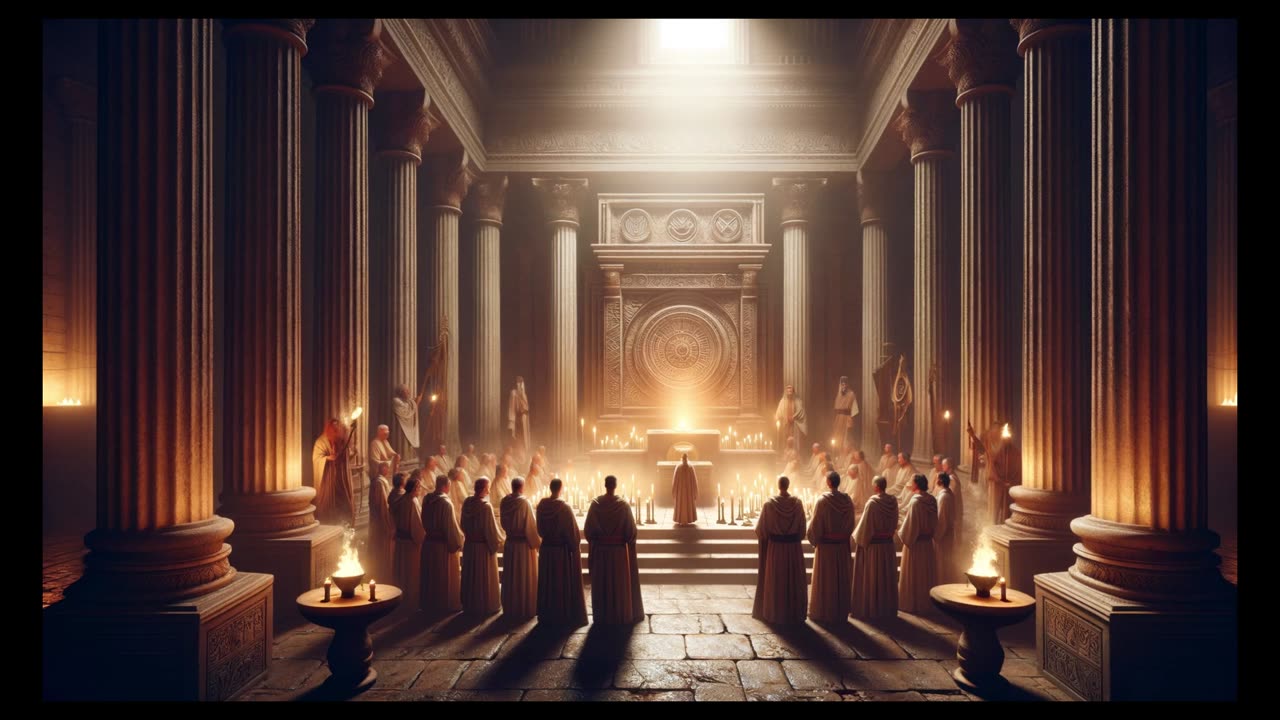Premium Only Content

Understanding Rudolf Steiner's Spiritual Initiation: A Comprehensive Guide
Rudolf Steiner, a pivotal figure in the development of anthroposophy, provides a comprehensive framework for understanding spiritual initiation and the role of initiates. In Steiner's view, initiation is a profound process of inner transformation that transcends mere ceremonial acts, guiding individuals toward higher states of consciousness and spiritual insight. Initiation, according to Steiner, involves a series of structured stages that lead the individual from ordinary perception to heightened spiritual awareness. This process is marked by a disciplined inner journey, characterized by self-examination, meditation, and the cultivation of moral and intellectual virtues. It is through this rigorous path that one attains the capacity to perceive and interact with spiritual realities.
Steiner delineates several key stages in the initiation process. The initial stage, preparation, involves moral development and intellectual discipline. The aspirant must cultivate virtues such as honesty, courage, and humility while developing the capacity for focused, clear thinking. This foundational work is essential for the aspirant to create a stable and pure foundation upon which higher spiritual experiences can be built. The second stage, illumination, is characterized by the individual's first experiences of heightened perception and spiritual insight. This may include the ability to perceive spiritual entities or deeper truths about existence. During this phase, meditation and contemplative practices are crucial, as they help to refine the aspirant's inner senses and align them with higher spiritual realities. The final stage, often referred to as initiation proper, involves direct, conscious experience of the spiritual world. At this stage, the individual has developed the inner faculties necessary to interact consciously with spiritual beings and realms. This profound transformation results in a new level of understanding and connection with the spiritual dimensions of existence.
Historically, the role of initiates has been pivotal in the spiritual and cultural evolution of humanity. In ancient civilizations such as Egypt, Greece, and India, initiates were revered as bearers of sacred knowledge and wisdom. These individuals underwent rigorous training and rituals to achieve higher states of consciousness and were often responsible for guiding their communities through spiritual and moral crises. The mysteries of Eleusis, the teachings of Pythagoras, and the spiritual traditions of the Vedas all exemplify the deep respect and importance accorded to initiates in various cultural contexts.
Steiner’s perspective on history is unique in that he views it through the lens of spiritual development. He posits that history is not merely a series of political and social events but a dynamic unfolding of spiritual evolution. According to Steiner, each epoch of human history corresponds to different stages of spiritual development and consciousness. Initiates, in this context, play a crucial role in transmitting spiritual knowledge and guiding humanity through these evolutionary phases. For example, Steiner viewed the ancient Indian and Persian epochs as periods where humanity was more attuned to the spiritual world, with initiates serving as the primary conduits for divine wisdom. The Egyptian and Chaldean periods, on the other hand, were seen as times of developing individual intellectual capacities, where initiates helped bridge the gap between spiritual and material understanding. The Greek and Roman epochs marked a further shift towards rational thought and individuality, with initiates guiding the balance between spiritual insight and intellectual development.
In modern times, Steiner saw the need for a new form of initiation that could reconcile the advancements of science and rationality with spiritual wisdom. He believed that contemporary initiates must integrate spiritual knowledge with scientific understanding, fostering a holistic view of the world that embraces both material and spiritual realities. This integration, according to Steiner, is essential for the future evolution of humanity.
Steiner’s method of initiation, while acknowledging the importance of historical practices, introduces a more accessible and individualized approach suited to the contemporary seeker. Steiner's initiation process emphasizes inner development, personal responsibility, and integration with everyday life. Unlike the exclusive and secretive nature of ancient initiation, Steiner's method is designed to be accessible to anyone genuinely seeking spiritual development. His teachings are openly published and shared, inviting individuals from all walks of life to embark on the path of initiation.
Steiner provides practical exercises and meditative practices tailored to develop specific spiritual capacities. These exercises are systematic and can be integrated into daily life, allowing individuals to progress at their own pace. For instance, concentration exercises, moral reflections, and imaginative visualization are key components of Steiner's method. Steiner’s approach to initiation seeks to harmonize spiritual wisdom with contemporary scientific understanding. He advocates for a balanced development where spiritual insights complement rational and scientific knowledge, fostering a holistic view of reality.
Steiner also emphasizes the role of the initiate, who serves as a guide and teacher for others on the path of spiritual development. The initiate's role is not merely to possess knowledge but to embody and transmit spiritual wisdom through their being and actions. This requires continuous personal growth and a deep commitment to the principles of truth and service.
For those interested in further exploring Rudolf Steiner's teachings on initiation and initiates, recommended readings include "Knowledge of the Higher Worlds and Its Attainment," "How to Know Higher Worlds," and "The Stages of Higher Knowledge." These works provide a detailed and practical guide to the principles and practices of spiritual initiation as articulated by Steiner. By following the path outlined by Steiner, individuals can embark on a journey of profound personal and spiritual growth, ultimately achieving a deeper understanding of themselves and the universe. This journey not only enhances individual spiritual development but also contributes to the collective evolution of humanity, guided by the timeless wisdom of initiates.
-
 3:57
3:57
Dangerous reads
7 months agoUnveiling The Ultimate Evil: Beyond the Son of Sam, Ep. 6
92 -
 1:09:51
1:09:51
The Dan Bongino Show
2 hours agoTragedy on the Potomac (Ep. 2412) - 01/30/2025
190K330 -
 LIVE
LIVE
Steven Crowder
3 hours ago🔴 Donald Unleashed: How Trump is Putting the Fear of God into Illegals and LGBT Radicals
34,445 watching -
 LIVE
LIVE
LFA TV
16 hours agoNOMINEES ASSEMBLE! | LIVE FROM AMERICA 1.30.25 11AM
4,766 watching -
 LIVE
LIVE
Bannons War Room
10 hours agoFBI Director Nominee Kash Patel Testifies at Confirmation Hearing
9,732 watching -
 LIVE
LIVE
Benny Johnson
3 hours ago🚨PANIC: Kash Patel FBI Director Confirmation Hearing LIVE Right NOW | Deep State on Life Support
30,194 watching -
 DVR
DVR
Rethinking the Dollar
1 hour agoThursday Morning Check-In: Trump Plays Blame Game, Fed Pauses and Metals Respond
5.74K -
 2:40:20
2:40:20
Matt Kohrs
11 hours agoMarket Open: New Highs Incoming! (META, NVDA & TSLA) || The MK Show
30K3 -
 29:16
29:16
Man in America
3 hours ago🚨 RED ALERT: Did Trump Just BREAK the Bank of England? This Could be HUGE!
7.17K2 -
 43:25
43:25
BonginoReport
6 hours agoRFK Jr. Goes To War With Big Pharma (Ep.129) - 01/30/2025
81.5K68